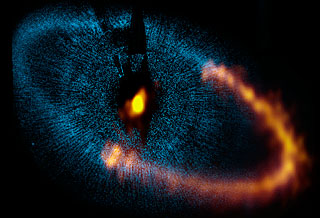The uncertainty of science: Satellite photos have revealed that there are twice as many emperor penguins in Antarctica than scientists had predicted.
Not surprising in this era of spin-generated science, every article I’ve seen on this story (here’s another) has felt obliged to say how this news means the poor penguins will start off stronger when global warming arrives to decimate their population. However, wasn’t global warming already happening? And wasn’t that warming supposed to have decimated their population already?
The truth is we really don’t know. This new data could actually mean that emperor penguins like global warming. It could suggest that global warming hasn’t started yet. It could even be evidence that the climate isn’t warming at all.
But no, let’s just spin it in one direction: global warming is happening, and it will kill penguins. No matter how many penguins we find.

